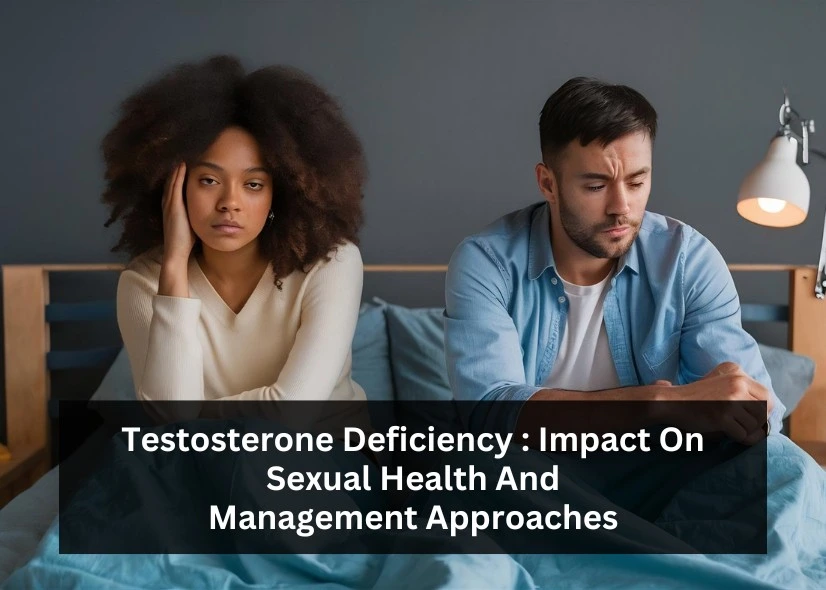Understanding Testosterone Deficiency
Testosterone deficiency arises when the body inadequately produces testosterone. While aging is a common factor contributing to declining testosterone levels, various other factors can lead to deficiency, including injury to the testes, certain medical conditions (such as diabetes or obesity), chemotherapy, or radiation therapy.
Impact On Sexual Health
- Decreased Libido
Testosterone plays a pivotal role in sexual desire or libido. Low testosterone levels can lead to a decreased interest in sex, reducing overall sexual activity and satisfaction. - Erectile Dysfunction (ED)
Testosterone deficiency can contribute to erectile dysfunction, making it difficult to achieve or maintain an erection sufficient for sexual activity. While testosterone alone may not be the sole cause of ED, it can exacerbate existing issues. - Reduced Sexual Performance
In addition to libido and erectile function, testosterone deficiency may affect sexual performance, including reduced stamina and vitality during sexual activity. - Mood Changes Low testosterone levels can also impact mood, leading to feelings of depression, irritability, or decreased motivation, which can indirectly affect sexual health.
Management Approaches
Effective management of testosterone deficiency involves addressing both the underlying cause and its symptoms. Management approaches may include:
- Hormone Replacement Therapy (HRT)
HRT involves supplementing testosterone levels through various methods, such as injections, patches, gels, or implants. This approach aims to restore testosterone levels to normal ranges, thereby improving sexual health and overall well-being. - Lifestyle Modifications
Adopting a healthy lifestyle can help optimize testosterone levels naturally. This includes regular exercise, maintaining a balanced diet rich in essential nutrients, managing stress, getting adequate sleep, and avoiding excessive alcohol consumption and smoking. - Medication
In some cases, medications such as phosphodiesterase type 5 (PDE5) inhibitors may be prescribed to manage erectile dysfunction associated with testosterone deficiency. - Counseling and Support
Psychological factors often accompany testosterone deficiency and its impact on sexual health. Counseling or therapy can help individuals address issues such as low self-esteem, relationship problems, or anxiety related to sexual performance. - Regular Monitoring
Regular follow-up appointments with healthcare providers are essential to monitor treatment efficacy, adjust medication dosages if necessary, and address any emerging concerns or side effects.
For expert guidance and support in managing testosterone deficiency and enhancing sexual health, consider reaching out to Lal Clinic. With their specialized expertise and patient-centered approach, we offer comprehensive evaluation and tailored treatment plans to address your unique needs. Don’t let testosterone deficiency hinder your sexual wellness and overall well-being—take proactive steps towards a healthier, more fulfilling life with Lal Clinic by your side.

